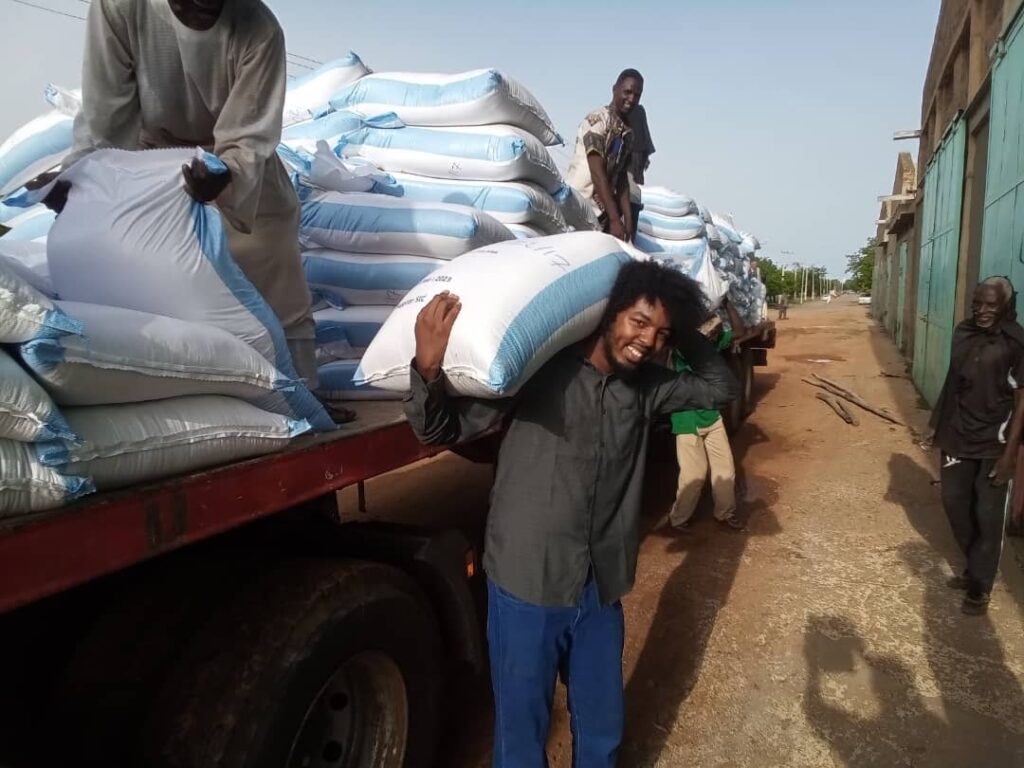UN FAO starts emergency seeds distribution in Sudan

The UN Food and Agriculture Organization plans to distribute 10,000 tonnes of seeds in Sudan (FAO)
CAIRO / KHARTOUM –
The UN Food and Agriculture Organization (FAO) has kicked off its campaign to leverage the current planting season and boost food production in Sudan, by distributing 10,000 tonnes of seeds to farmers in Sudan.
The campaign is a response to the urgency of the ongoing main (June-October) agricultural season in the country, the FAO Regional Office for Near East and North Africa said in a press release yesterday.
While the war between the Sudan Armed Forces and the paramilitary Rapid Support Forces, mainly fought in the capital and cities in Kordofan and Darfur, continues, FAO plans to assist more than one million vulnerable farmers and their families (five million people).
The agricultural organisation plants to distribute 10,000 tonnes of sorghum, millet, groundnut, and sesame seeds for planting in 17 of the country’s 18 states.
To date, FAO has delivered 3.3 tonnes of seeds to eight states (Blue Nile, El Gedaref, Kassala, Red Sea state, Sennar, White Nile state, South and North Kordofan) and started the distribution to farmers, amidst security and logistics challenges.
“The need for swift agricultural support in the Sudan is paramount. While much work lies ahead, we are fully committed to leveraging this crucial planting season’s window of opportunity and our efforts on the ground continue daily,” stated Hongjie Yang, FAO Representative in Sudan.
“Our goal is to navigate the complex security and logistical challenges to continue to reach farmers in the country with this time-sensitive assistance.”
The campaign is supported by the US Agency for International Development (USAID), Norway, Germany, the Netherlands, and the UN Central Emergency Response Fund (CERF).
“FAO remains steadfast in its mission to save livelihoods and lives and ensure food access and production in the Sudan. By bolstering local food production and safeguarding agrifood systems, the Organization aims to alleviate acute food insecurity, reduce human suffering and curb the likely expanding humanitarian burden in the coming months.
“To date, FAO has raised nearly $20 million against the total of $95.4 million to reach 15 million people with multiple life-saving interventions including providing farmers with seeds and farming equipment and protecting and restocking pastoralists’ livestock herds,” the organisation stated.
Food insecurity
The Famine Early Warning Systems Network (FEWS NET) in late April warned of rapidly increasing food insecurity levels in the country.
“Before the outbreak of conflict, Sudan already faced a high burden of food insecurity given the exceedingly high cost of living amidst the persistence of poor macroeconomic conditions and intercommunal conflict,” FEWS NET said.
While the current fighting has not yet spread to rural areas, the likely ripple effects of trade disruptions and price increases in rural areas are expected to further exacerbate food consumption gaps in the typical lean season period from June to September.
Emergency outcomes are likely to increase among populations that are already acutely food insecure and have low coping capacity, the US monitoring agency stated.
In May, REACH organisation predicted a heavier-than-normal rainfall for parts of Sudan during this year’s (June-September) rainy season.











 and then
and then